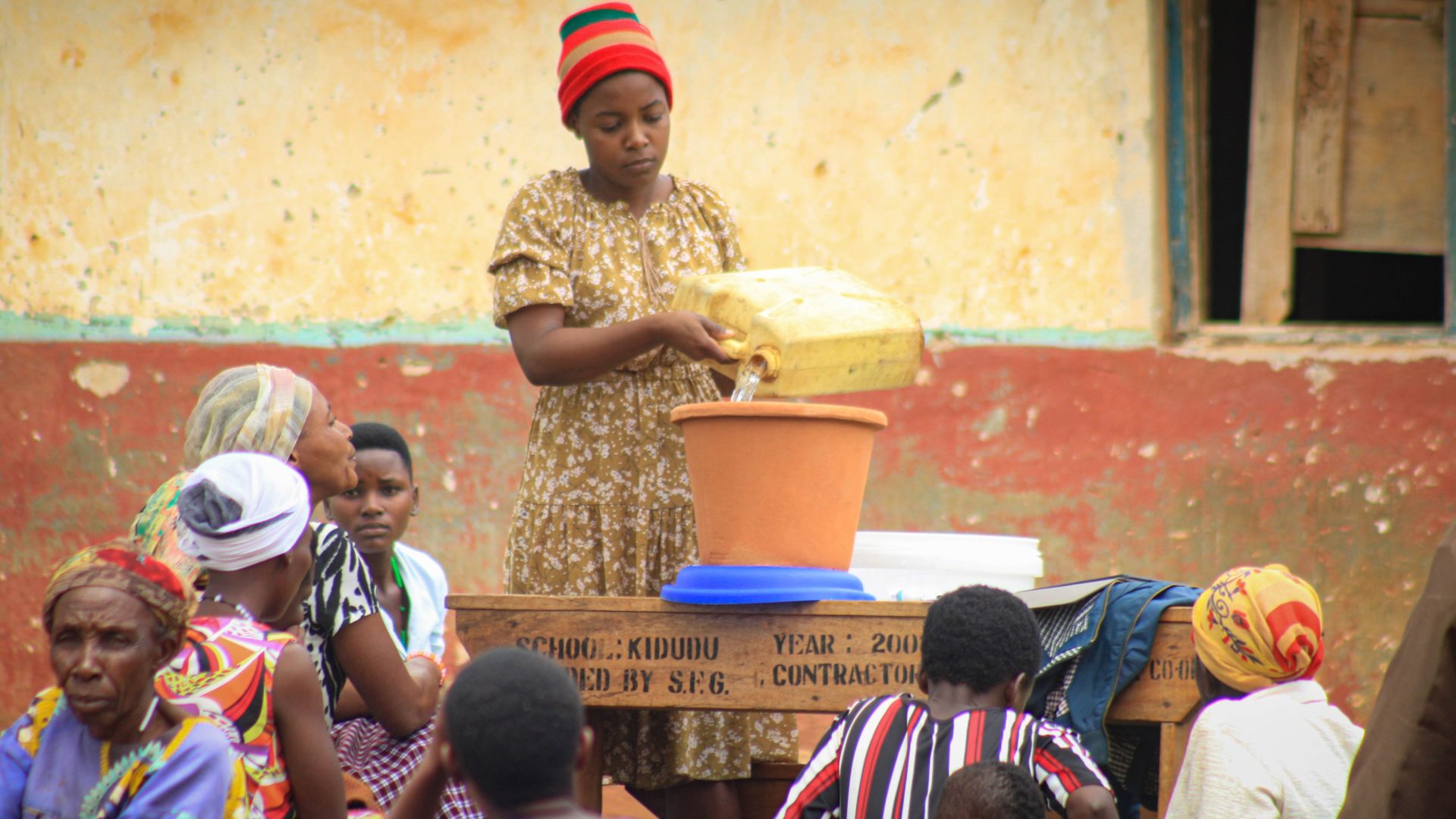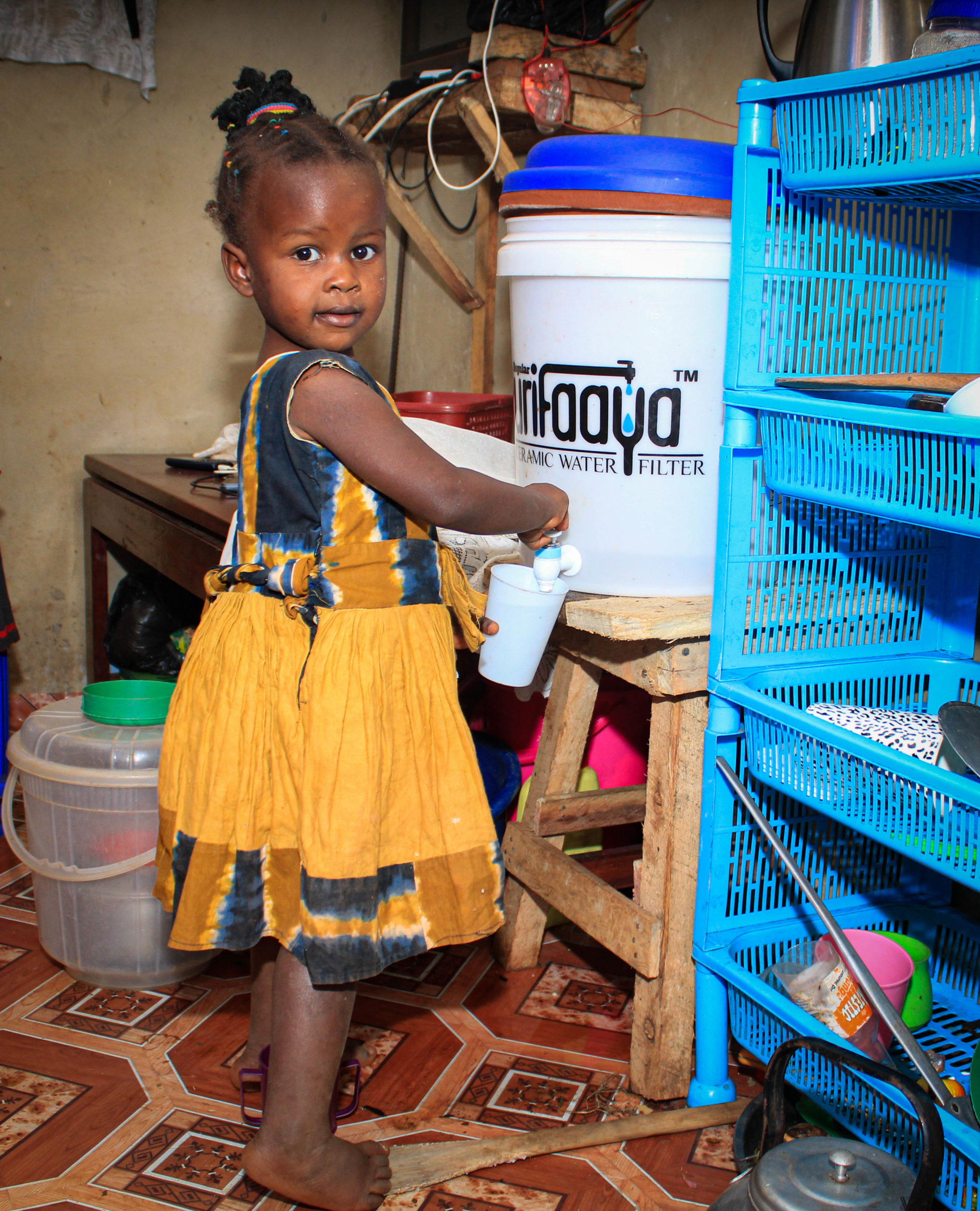Access to clean drinking water is a basic human necessity for health and well-being. When we consider clean water initiatives, we naturally focus on their transformative impact on health, hygiene, and community development. Yet beyond these well-document benefits list another crucial advantage – the significant role they can play in reducing carbon emissions.
Take Uganda as an example, where over 21 million people lack access to clean drinking water. Contaminated water and poor-quality sanitation can lead to the spread of illnesses such as cholera, diarrhoea, dysentery, Hepatitis A, typhoid and polio. Many people resort to boiling water to purify it and prevent water-borne diseases using firewood as the primary source of fuel. Yet, through deforestation and greenhouse gas emissions from burning, this practice comes with a substantial carbon price tag.
Alternatives are emerging. In the last two years, TASC has financed the distribution of 30,000 ceramic SPOUTS Purifaaya water filters to households in Western Uganda, with active monitoring in place to determine their use on a day-to-day basis. These scientifically tested, locally-made filters allow households to access safe drinking water without the need to boil it. They filter water through microscopic holes in a ceramic pot, leaving germs and impurities behind. The impact on the families using the water systems is staggering in terms of health and wellbeing, but so too is the environmental effect – the reduction in fuel used for water boiling can diminish each household’s CO2 emissions by up to three tonnes per year.
By successfully registering the project with Gold Standard, a standards body responsible for certifying and tracking that projects deliver their proposed contributions to the United Nations Sustainable Development Goals, the carbon benefits of the project are independently verified and transparently accounted for. More than 3,400 Gold Standard certified projects are underway in over 100 countries – including TASC’s water filtration work – creating a global impact.
This type of certification unlocks significant opportunities for businesses all over the world. Through the issuance of carbon credits, businesses looking to offset their own emissions have an opportunity to purchase credits, while simultaneously supporting projects which are delivering significant social and environmental benefits. For those in the UK water market with greenhouse gas emissions reductions targets, purchasing carbon credits could form a valuable part of a wider strategy which includes continued innovation and energy efficiency measures. Emissions that come as a result of activities outside of an organisation’s direct control such as overseas travel or staff commuting – known as scope three emissions – could also be offset in this way.
International carbon trading came under the spotlight recently at COP29 in Baku. A landmark agreement is now in place on the carbon market mechanisms outlined in Article 6 of the Paris Agreement, which will pave the way for the future of how offsets work, creating more legitimacy and trust within the market. In the years to come, we could see further measures that mean emissions reductions from projects in one country can be traded and counted towards another nation’s targets – for instance, carbon savings generated by a clean water project in Uganda contributing to the United Kingdom’s emissions targets.
The offshoot of the Article 6 decisions could see many more projects starting to bridge the gap between development aid and climate mitigation, creating healthier communities and a healthier planet. There are currently around36,000 carbon credits available from the most recent issuance in December – with each credit representing one tonne of carbon dioxide equivalent (CO2e) that has been removed from the atmosphere.
The more that these projects are recognised for their dual benefits, the more support they are likely to attract, and we will see increased impact among the communities most in need. As more finance is injected into projects through the sale of carbon credits, they can expand into further territories and support greater numbers of people to live healthier lives.
For stakeholders and investors in all industries, ESG (environmental, social and governance) standards remain a top priority and investing in projects such as the clean water filtration initiative can become a core part of future strategies – where improving lives and protecting the planet go hand in hand.
To read more about TASC’s project in Uganda and opportunities to purchase carbon credits, visit: https://marketplace.goldstandard.org/collections/projects/products/tasc-safe-water-systems-for-rural-uganda




